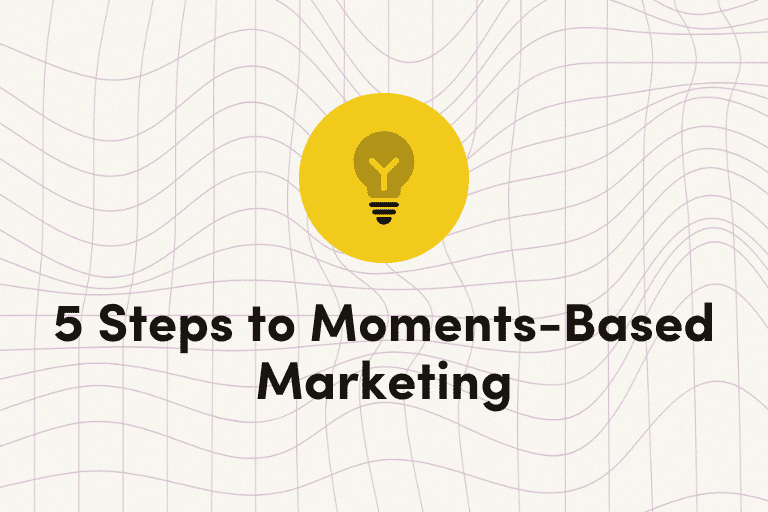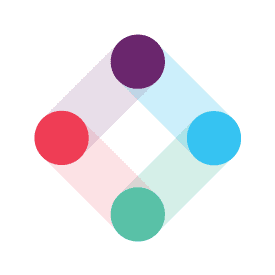October is National Disability Employment Awareness Month, which, this year, aims to increase jobs and community involvement for people with disabilities in the aftermath of the COVID-19 pandemic.
The World Bank estimates that there are more than one billion people worldwide—around 15% of the population—living with a disability. As consumers, they represent a market the size of the United States, Brazil, Pakistan, and Indonesia combined, and have disposable income valued over $8 trillion. As employees, they add to organizational diversity, which drives better decision-making and innovation.
Mark Valdez, Software Engineer here at Iterable, has a special appreciation for bridging diversity and innovation. Prior to Iterable, Mark wasn’t an engineer—he wasn’t even in tech. Instead, Mark was a mentor at Toolworks, a nonprofit devoted to helping all people with disabilities connect with opportunities in their community. His path to Iterable is lined with empathy, a growth mindset, and resilience.
This month, Mark wants to challenge companies to ask themselves: “Do our DE&I efforts include people with disabilities?”
While you pause to ponder that question (and please do, it’s an important one) we wanted to ask Mark a few questions of our own:
A Q&A with Mark
What’s your backstory?
A year ago, I didn’t know how to code. I didn’t really know anything about computer science. I graduated from UC Davis with a degree in psychology. But, like many college graduates, I didn’t really know what to do with my degree. So, I took a step back and honed in on my passion within the major: mentorship. That’s when I found Toolworks.
Looking back on my work there, I know I loved it because I was helping people. I was a friend, confidant, mentor, and motivator to adults with incredible talent, drive, and fortitude, who were faced with extraordinary hurdles in employment due to disability.
What led you into the tech industry?
I spent every day at Toolworks beside my clients. Physically, mentally, and emotionally. But, while I was making a difference as a mentor, I knew I could do more to solve the systemic issue of bias against disability employment.
That’s when I found coding. I knew what I needed to build to close the disability employment gap, but I didn’t know how to do it. Coding bridged that gap.
I first took a computer science class with Udemy, an online learning platform. It was challenging, but it was encouraging. I knew that it would help me take my impact to the next level. Udemy is a great resource for anyone looking to learn a new concept or skill. It also happens to be a resource that Iterable leverages to encourage personal and professional learning and development.
And then you discovered Hack Reactor. What happened there?
With Udemy, I was learning engineering, but I needed more experience and I didn’t think I could get it. I had neither the money nor the time to go back to school. I had the fortitude to continue along the “tech” path, but I needed an opportunity.
Hack Reactor, a programming bootcamp by Galvanize, presented the opportunity. And Iterable helped me get through the door.
Recognizing the ever-widening gap in equity in tech, and to help promote a more diverse and inclusive future in tech, Iterable launched a scholarship partnership with Galvanize, aptly named Iterable X Galvanize. By design, the scholarship was built to ensure that young people from underrepresented communities and backgrounds are ready to enter the tech workforce equipped with competitive technology skills and well-versed in the impact and utility of emerging technology. It was exactly what I needed!
What was working as an Iterable intern like?
Working as an intern was like transitioning from school projects to actual work. To be honest, after my first few days, I didn’t think I was ready. There were times when I faced not just coding challenges but also impostor syndrome, when I thought I couldn’t do something. I once spent three days working on a radio button!
But, supported by my mentor, Zach Power, I made it through. Zach’s a Senior Software Engineer at Iterable with a passion for people, just like me. He also leads the Pride Affinity Group at Iterable, which provides a space for inclusivity at work.
“It was such a blast mentoring Mark during his internship this summer. His positive energy, growth mindset, and passion for learning made the process a lot of fun for everyone on the team. At the start of the internship, my hope was to help Mark gain a well-rounded experience and pursue his interests in technology, careers, and Iterable’s culture. Additionally, I wanted to help Mark navigate some of the struggles that I encountered as an intern, such as ‘impostor syndrome’ and the feeling of being overwhelmed.
The team and I are all super proud of the success that Mark had this summer in his project as well as in his impact on our organization. We are ecstatic that he has joined the Iterable family full-time.” – Zach Power
How would you advise someone who wants to pivot into tech?
Research, research, research. The world of tech may seem unapproachable, especially if you aren’t the self-taught, garage programmer you see in movies. Put the work in at the front end of your tech journey by researching avenues for learning that work with you, your lifestyle and budget.
Hit me up! One of the biggest hurdles I faced in my pivot to tech was that I didn’t see anyone who had nontraditional experience in the field. I thought that I, with my Psychology Degree and nonprofit work history, was an outlier. Now, I’m always a resource if you are searching for motivation, advice, or instruction. If I can pivot to this industry, so can you.
What can companies do to create tech opportunities for more people?
- Be intentional about creating opportunities for diverse candidates (women, underrepresented minorities, and adults with developmental disabilities) in your workforce. Ensure barriers to entry are lower at your company. Iterable, for instance, doesn’t require college degrees or professional experience in their entry level job applications. This makes the application process more inclusive, and opens the door for people with nontraditional backgrounds to apply. As Markita Jack, Iterable’s Head of DE&I shares, “Only when a workplace is designed to support a diverse workforce will it attract one. And, as we know, a more equitable future—one of equal opportunity for people of every race, color, sexual orientation, gender, and ability—is a more profitable one.”
- Get creative. My advice for organizations is to get creative about the opportunities they provide. Internships are a great example, and provide people the opportunity to learn on the job, and grow the confidence to eventually apply full-time.
- Design with empathy. Today, of the over 33 million disabled people of working age in the US, only 18.5 million (55.8%) are currently employed. Commuting poses a significant barrier to many of these people depending on the nature of their disabilities. What may be considered a simple trip downtown can post incredible challenges for individuals with limitations in mobility. Not to mention discriminatory reactions these people may face in and around the office. Making the location of one’s home an implicit qualification for employment creates major hiring barriers for workers in many demographic groups. I encourage employers to move to a hybrid work model—one that meets the needs of everyone, wherever they are located.
Creating opportunities for underrepresented individuals in tech isn’t just the right thing to do, it’s also good for business. Diversity unlocks innovation and drives market growth—a finding that should intensify efforts to ensure that executives both embody and embrace the power of differences.
We’re deeply committed to driving a more equitable future in the tech industry, and are proud to share that we will be donating $5,000 to Toolworks to further their work of connecting ability to opportunity. Interested in making a contribution to Toolkworks? Click here.
We’re working to create a more diverse and accessible workplace. Join us as we grow.































